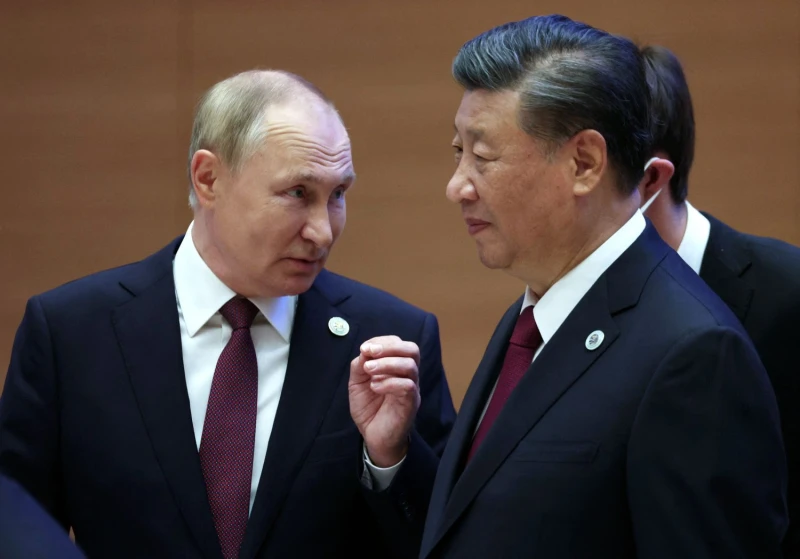Dave Patterson
National Security correspondent at LibertyNation.Com. Dave is a retired US Air Force Pilot with over 180 combat missions in Vietnam. He is the former Principal Deputy Under Secretary of Defense, Comptroller and has served in executive positions in the private sector aerospace and defense industry. In addition to Liberty Nation, Dave’s articles have appeared in The Federalist and DefenseOne.com.
While Chinese Minister of Commerce Wang Wentao looked for ways to pick America’s financial pockets in a meeting with US counterparts Secretary of Commerce Gina Raimondo and US Trade Representative Katherine Tai, Russian Prime Minister Mikhail Mishustin visited Beijing for collaborative discussions with President Xi Jinping and Premier Li Qiang. Many see the timing as significant, coming on the heels of the G7 Summit in Hiroshima, Japan, where the leaders of seven of the wealthiest countries were highly critical of Russia and China. As the White House readout of the G7’s leaders’ declarations explained:
G7 leaders announced new steps to economically isolate Russia and weaken its ability to wage its war [in Ukraine] … and squeeze Russia’s access to the international financial system … The G7 will push for a level playing field for their workers and companies and seek to address the challenges posed by China’s non-market policies and practices and foster resilience to economic coercion.
Reaction From Russia and China
Consequently, it’s not surprising that Mishustin, Xi and Li responded to the G7, with the Russian prime minister asserting that the relationship between Moscow and Beijing is “at an unprecedented high level” notable for a mutual “desire to jointly respond to challenges, which is associated with increased turbulence in the international arena and the pressure of illegitimate sanctions from the collective West,” according to Andrew Hayley of Reuters. “As our Chinese friends say, unity makes it possible to move mountains,” Mishustin added.
The Sino-Russian deal included documents “formalizing agreements reached earlier in the year between Russian President Vladimir Putin and Chinese President Xi Jinping” that “call for deeper ties between the two nations when it comes to trade investment, agricultural exports and sports among others”, UPI reported. Formalizing the fast friendship between America’s premier economic competitors and military adversaries adds more credibility to the global threat Moscow and Beijing represent. In addition, Russia’s agreement to provide energy products to China feeds the People’s Republic’s growing appetite for petroleum products. The continuing dependence on oil and its byproducts by Russia and China puts the United States in a dangerously impractical position of moving away from fossil fuels.
Russia and China Are Mutually Supportive
Furthermore, the Sino-Russian economic agreement allows Russia to continue to support China’s nuclear program by supplying weapons-grade plutonium at a handsome price. Those payments go directly to supporting Putin’s war on Ukraine. Liberty Nation explained the US dilemma:
Furthermore, the congressional leaders wrote that Rosatom [Russia’s state-owned nuclear energy monopoly] represents a double threat to the United States and the rest of the West. Not only does the revenue from Rosatom’s global enterprise and the CCP’s [Chinese Communist Party] nuclear weapons market provide weapons for the Kremlin’s unprovoked war against Ukraine but also increases China’s nuclear weapons capacity in a direct threat to the United States.”
This is evidence of growing global geopolitical domination. Both have designs on the Arctic and other regions that support their geostrategic goals. A strong, mutually beneficial economic and trade base allows Russia to pay for its war on Ukraine and for China to influence underdeveloped nations. Whether the collaboration is economic or military, Russia and China moving closer together does not bode well for the United States and the rest of the West.

